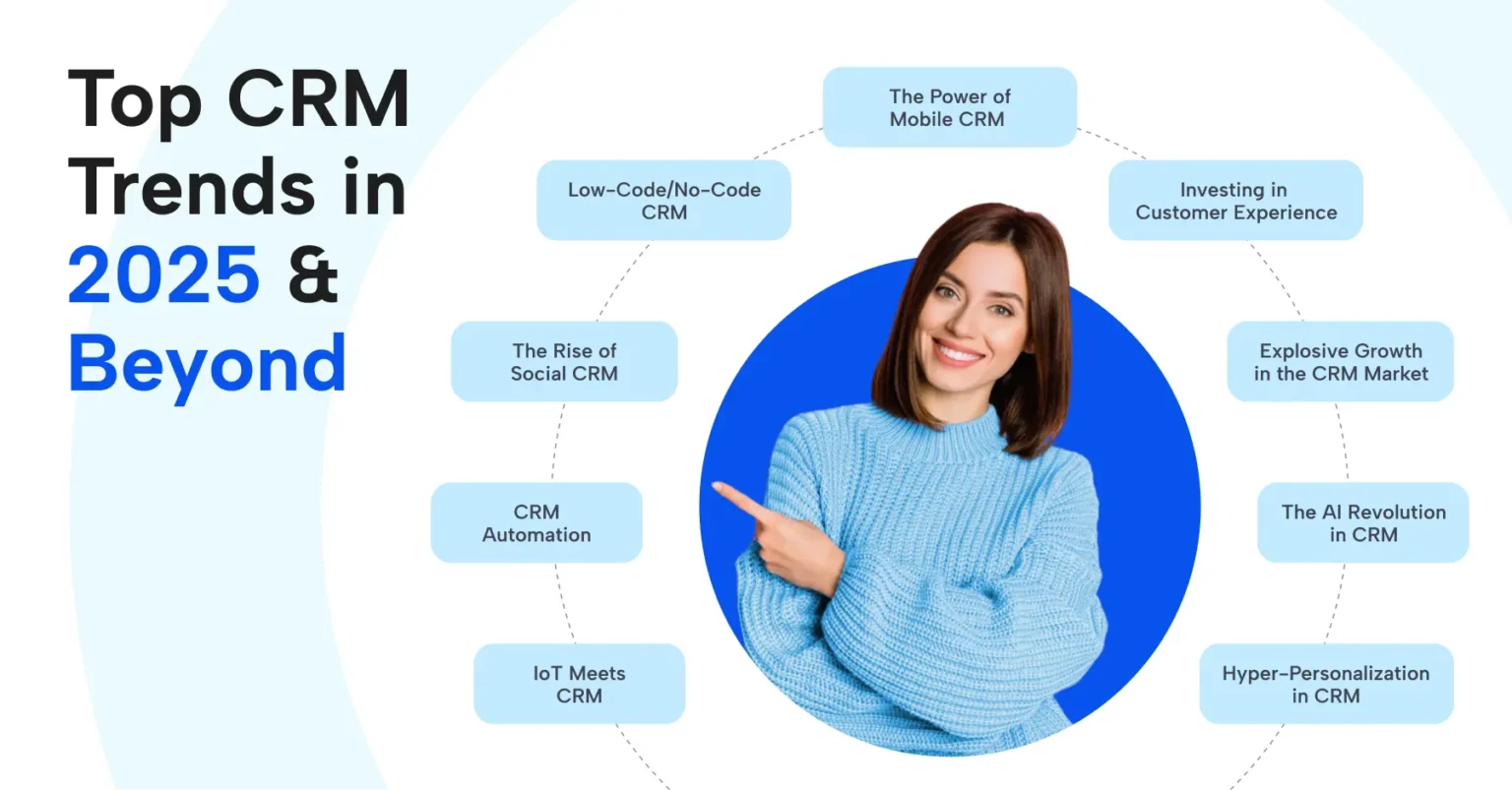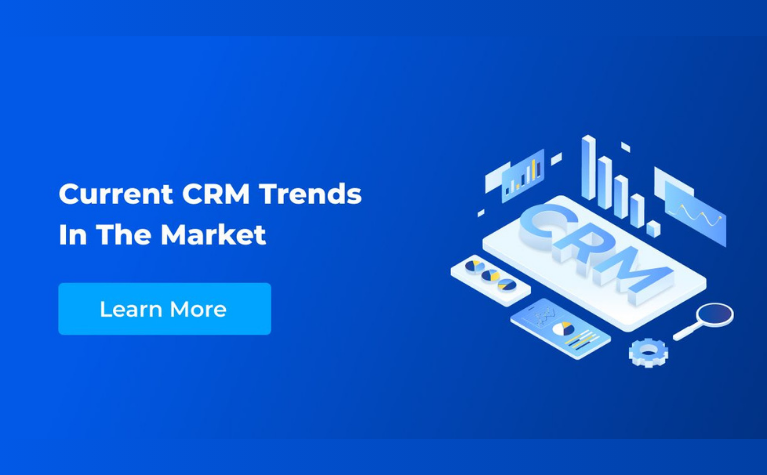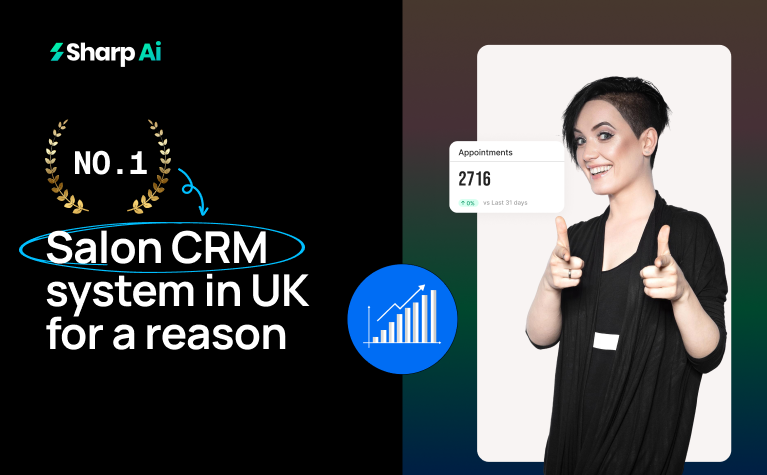With these new AI-powered CRM trends, your half of the employees can become useless. Shivering? Yes, and you can turn business processes into efficient and automated workflow with no human errors, save time and money. It is one of the key reasons why CRMs are growing businesses. With all the hype about CRM, Sharp AI presents to you the best AI CRM trends of 2025 that you should know. Read below and scroll!
How do AI-powered CRM handle increased data volumes and user loads as a business grows?
Scalability is one of the key features for any AI-powered CRM solution. SharpAI CRM has a cloud distributed architecture which makes it capable of processing lots of customer information without any hurdles. AI CRM also eases processing of data by automating tasks, task scheduling, and offloading server loads with smart data compression. This enables companies to handle growing amounts of data and volumes of users without any constraint, so the company can work on growth opportunities and not the infrastructure.
To what extent can AI CRM tools be customized to fit specific business needs?
Ease of customization is the number one priority when choosing an AI-powered CRM solution. SharpAI CRM is fully customizable in workflows, data fields, and reporting to tailor the CRM to your individual business requirements. You are in retail, finance, healthcare, or any other vertical, and SharpAI can be tailored to industry-specific requirements. Implementation of AI in CRM also allows for creation of customized user interfaces and customer interaction plans such that the CRM is a configuration to your company and not your company a configuration to the CRM.

The Hottest AI-Powered CRM Trends Revolutionizing CRM in 2025
1. Agentic AI: Autonomous AI-powered CRM Agents
Agentic AI refers to autonomous AI agents capable of performing complex, multi-step tasks across various internal systems. For instance, Sharp AI’s AI Employee plan offers a multitude of agentic capabilities. This platform offers a combination CRM and 6 features; conversion AI, review AI, voice AI, workflow AI, content AI, and funnel AI. Together, these features save time, reduce manual work, and boost accuracy.
2. Generative AI for Content Creation
Generative AI is transforming CRM solutions by making content-creation tasks like writing emails, creating meeting minutes, and writing internal notes easier. The transformation releases the support and sales staff to spend more time on strategic roles and becomes more productive in all ways.
3. Predictive Analytics for Proactive Engagement
AI-powered CRM platforms more and more depend on predictive analytics to forecast buyer behavior, detect threats of churn, and provide next-best actions. By being proactive in this manner, businesses can interact with customers in a better way and tailor communications based on customer requirements, resulting in higher customer satisfaction and loyalty.
4. AI-IoT Convergence for More In-Depth Customer Understanding
Convergence of IoT and AI is enabling it to be possible to have CRM systems with real-time behavior insights using intelligent devices. For instance, wearable health tracking devices can provide usage reports to CRM applications to enable firms to provide proactive service recommendations and right-time experience based on real-time insight.
5. Low-Code and No-Code AI CRM Platforms
To make adoption of AI more democratized, most AI-powered CRM vendors are making low-code and no-code platforms accessible through which users are able to create and design AI-powered workflows without the need for extensive programming expertise. This shift is helping small and medium enterprises to leverage AI capabilities, automating workflows and optimizing them without the need for specialist IT professionals.
6. Improved Data Security and Compliance Features
With increasing CRM systems relying on AI, data security and compliance are the priority. AI-powered solutions are being made in a bid to secure customer data from insecure processing, as per rules like GDPR and CCPA. This is putting pressure on businesses to achieve customers’ trust by securing their personal data.
7. Conversational AI for Real-Time Customer Interaction
Conversational AI in the shape of chatbots and virtual assistants is transforming industries to enable live customer interaction through AI-powered CRM software. Solutions driven by AI can respond to questions, assist, and walk customers through processes, elevating the customer experience and reducing response times.
8. AI-Driven Sales Forecasting and Opportunity Scoring
Machine learning programs are being used more and more to analyze past data and forecast future sales patterns. Scoring options against their chances of occurrence allows companies to understand leads more clearly, resource effectively, and create more sales results.
9. Hyper-Personalization With AI-Generated Content
AI is driving hyper-personalization in AI-powered CRM by creating customized content for each customer. They consist of customized emails, product suggestions, and customized marketing messages, which are created based on consideration of customer behavior and taste, resulting in enhanced and optimized interactions
10. AI-Powered CRM Analytics for Data-Driven Decision Making
Sophisticated AI analysis is giving CRM users profound insights into customer activity, sales performance, and marketing metrics. These insights are facilitating rational decision-making, automated strategy, and customer satisfaction through knowledge and forecasting of customer needs.

FAQ Section
How do AI-powered CRMs compare in terms of integration capabilities with third-party applications?
Integration capabilities are some of the strongest AI-powered CRM differentiators, particularly since companies use a large number of third-party apps in marketing, sales, customer support, and analytics. Integration in top AI-powered CRMs in 2025, SharpAI provides much stronger API integration with third-party sites like ERP systems, marketing automation tools, e-commerce websites, and social media sites. SharpAI’s AI integration in CRM ensures smooth data flow between platforms, eliminating silos and enabling seamless customer engagement across all touchpoints. This interoperability is essential for businesses aiming to create a fully connected digital ecosystem.
Are there any limitations or challenges in integrating these tools with other software platforms?
One of the common challenges when integrating AI CRM tools with third-party applications is data compatibility. Legacy software or custom solutions can have complex data structures that don’t mesh well. But SharpAI CRM has a highly flexible API-first style of development that enables firms to integrate with the vast majority of software systems in today’s age without much trouble. Although custom integrations in some cases can be more effort-intensive as regards to development, SharpAI’s plug-and-play integration patterns make the migration and synchronization process as smooth as can be. And then there are appropriate data mapping and pre-migration audits that companies need to maintain in order to deal with compatibility risks.
Which CRM is best suited for scaling businesses?
What scaling businesses need is a CRM that does not sacrifice performance while managing growing data volume and user loads. SharpAI CRM is well-optimized for scaling businesses with its cloud-native design, AI-tuned operations, and auto-scaling. As your business grows, SharpAI’s infrastructure can automatically expand to accommodate additional data and users, ensuring that your CRM continues to function smoothly even as demands increase. In addition, its AI capabilities can provide actionable insight into growth trends, allowing businesses to be able to respond to emerging issues rapidly.
Will AI take over CRM?
AI will not replace CRM but enhance the ability and efficiency of CRM systems. In fact, AI-powered CRM solutions are an evolution of the classic CRM systems to utilize machine learning and predictive analytics to enhance their capabilities. For instance, whereas a conventional CRM merely stores and holds data, an AI CRM such as SharpAI actually interprets the data, offering actionable insights to make better business decisions. This blending allows CRM systems to transform from mere data silos to intelligent platforms for forecasting customer behavior, optimizing interactions, and automating tasks.
Can AI create a CRM system?
While AI on its own cannot create a CRM system, it is the power behind and propelling the functionality of CRM. AI included in CRM solutions such as SharpAI is intended to mesh seamlessly with an existing CRM infrastructure, offering cutting-edge data processing and customer interaction through automation, predictive analysis, and natural language processing. The features empower the businesses to totally revamp their customer handling process, making the CRM intelligent and intuitive. AI-driven features are likely to be integrated into CRMs during development, with unimpeded flexibility and self-configuration to match changing business demands.
What is the future of CRM?
The future of CRM is heavily intertwined with AI-based systems. AI-driven CRM systems will continue to become more automated, predictive, and real-time decision-enabled. Future AI CRMs will not just anticipate customer activity and predict actions but also suggest active engagement choices and dynamically shape response to market trends. Other than that, since companies are increasingly going for the All-in-One CRM Software solution, we can expect even more innovations that blend AI, machine learning, and automation for sales, marketing, and customer service campaigns and package them into a single experience neater and leaner than ever.
What is the 30% rule of AI?
30% rule of AI is a concept in which AI CRM software can automate 30% and even greater amounts of duplicated work being executed in CRM systems, including lead management, follow-up, data input, and report generation. Automation enables business firms to free up precious time for employees to focus on priority customer interactions and strategy. The automation not only drives productivity but also provides improved CRM accuracy through the reduction of human error and allowance for timely and data-based customer interaction.
Will AI take over database management?
While AI does not entirely replace database management, it greatly improves data operations within CRM systems. Artificial intelligence-powered CRM software such as SharpAI comes equipped with data-cleaning algorithms, self-service data classification, and intelligent data normalization that ensure a high-quality database. Second, AI ensures to make data availability as high as possible so that correct customer information is real-time ready to analyze, interact with, and base decisions on. AI ensures maximum data security through anomaly detection and blocking unauthorized access, thus enhancing the database administration process for efficiency and security.Contact us to learn more about Sharp AI and how it can support your business.
Learn More : 6 Top AI-Powered CRM Tools to Explore in 2025




